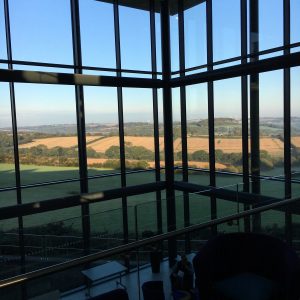Procurement teams have an important strategic role to play in an organisation: where once upon a time procurement may have been seen to play a purely transactional role, now procurement is just as important as sales when it comes to an organisation’s bottom line.
For that reason, good training that’s tailored to your team’s needs is essential; I’ve seen coaching and training take procurement teams from underperforming to making huge cost savings and positively impacting customer satisfaction and company culture too.
At this time of year, lots of the clients I work with are finalising their budget for 2025. If that’s you, here’s why you should consider investing in procurement training for next year, and how it’ll benefit your team’s productivity, your company culture, your brand, and your organisation’s bottom line.
Good training helps you make the most of the talent you’ve got
A thorough analysis of the skills you’ve got in your procurement team – and where the gaps are – will allow for a tailored approach that’ll help you make the most of your team’s strengths. Perhaps your team is great at planning, but could use some training in interpersonal skills to help them negotiate more effectively, and deal with internal stakeholders better too. Procurement training can turn good teams into great ones, with skills that align with your organisation’s goals.
Training improves employee satisfaction and retention
Improving employee retention is a concern I hear a lot from clients, and training is a very effective way to do it. Employees who feel their personal growth is being supported are more engaged, motivated, and loyal. Offering ongoing learning and development opportunities shows your team that you value their contribution and want to see them succeed. In turn, this improves morale and reduces staff turnover – a critical factor given how costly and disruptive it can be to recruit and onboard new team members. A well-trained team is a happy one, and happiness directly impacts productivity and performance.
By saving money, procurement frees up capital that can be put to better use elsewhere
One of the most immediate benefits of training your procurement team is the direct cost savings that come from better and more strategic purchasing decisions. Well-trained teams are better equipped to negotiate contracts, identify cost-saving opportunities, and avoid unnecessary expenditure. The savings they generate can then be redirected to other areas of the business – whether that’s innovation, marketing, or expanding into new markets. Essentially, procurement training doesn’t just pay for itself; it can fuel future growth by unlocking capital that would otherwise be lost.
A well-trained procurement team plays an important strategic function that goes beyond simply ‘buying things’
The role of procurement has evolved far beyond transactional tasks. Today, procurement teams are at the heart of strategic planning, identifying suppliers that align with the organisation’s long-term goals and values, mitigating supply chain risks, and ensuring sustainable purchasing practices. When equipped with the right training, procurement teams can collaborate more effectively with other departments to drive business value. A McKinsey report found that companies investing in their procurement departments saw nearly double the profit margins compared to those with underdeveloped purchasing functions (20.2% versus 10.9%).
Procurement training can positively impact wider company culture
Better communication skills mean that other departments will see procurement not as a bottleneck, but as a collaborative partner working with them, not against them. Interpersonal skills play a huge role in this, and it’s why I put together my programme Developing Procurement Talent; procurement professionals who are good communicators and great leaders are much more effective at building and maintaining relationships inside the organisation as well as outside.
I’ve spent the last couple of years working with Chris Turner who started Civility Saves Lives (a collaborative project looking at the impact of civility in healthcare), whose research showed that better, more empathetic communicators mean happier staff even outside the trained team’s department, as well as improved productivity and performance.
Procurement teams shape customer experience, brand, and reputation
The quality of products and services your procurement team sources has a direct impact on your organisation’s reputation and the experience you deliver to customers. A well-trained procurement team understands that sourcing the right materials at the right price is only half the battle – they also ensure that suppliers meet your standards for quality, sustainability, and ethical practices. In this way, procurement doesn’t just manage costs; it helps build trust, loyalty, and a solid brand image.
You can find out more about the Developing Procurement Talent programme here. I also offer tailored business training on everything from communication skills to leadership, strategic planning and time management, as well as one-to-one coaching. Get in touch to find out more.



